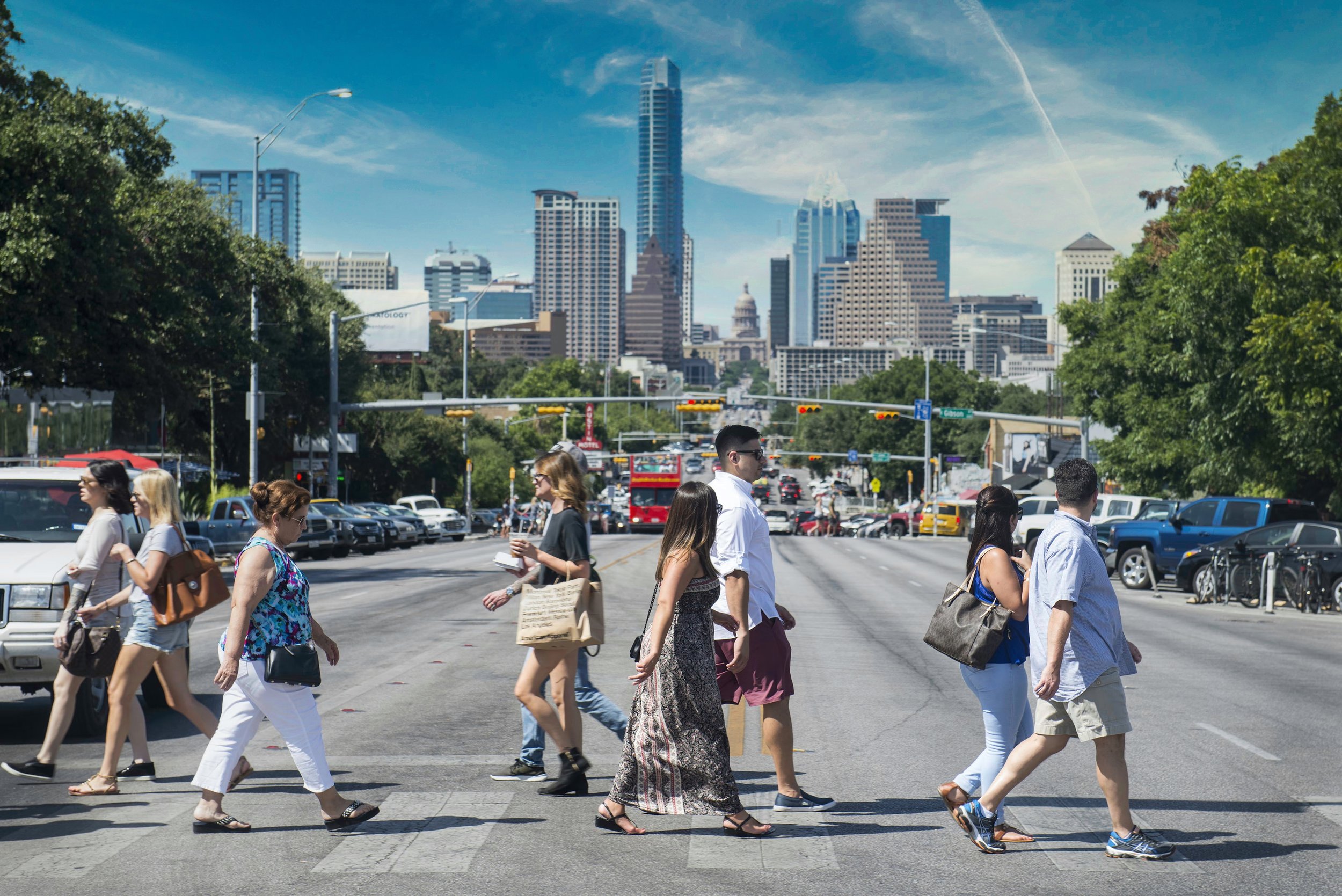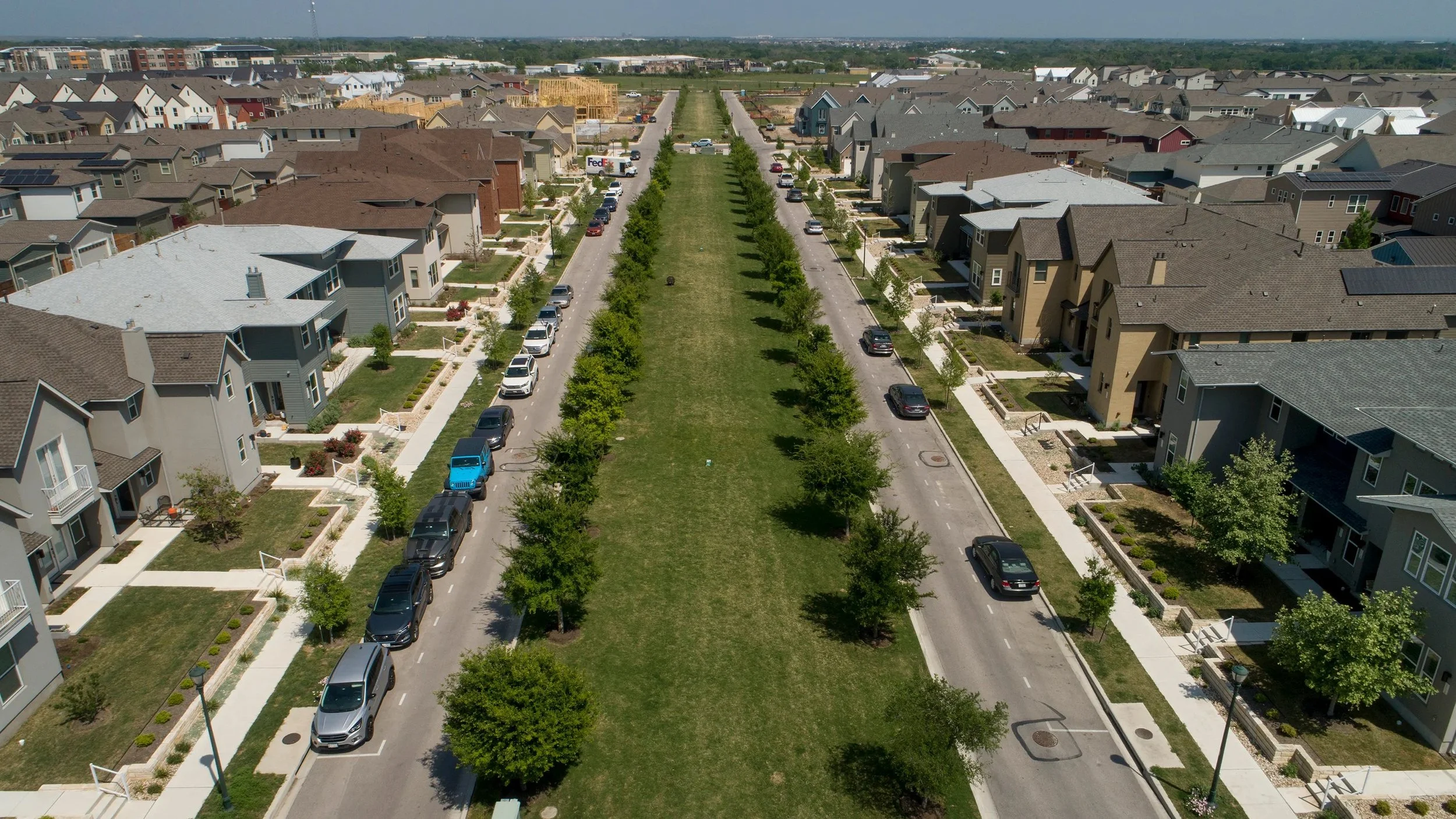
Your Burning Questions
Don’t see your question below? Contact us at info@atxparkingreform.org.
Are you trying to get rid of parking?
Austin is a driving city. Won’t eliminating parking mandates fail here?
Won’t removing parking mandates cause parked cars to overflow onto neighborhood streets?
Won’t there be more parked cars near schools, making it harder and less safe to drop off and pick up kids?
Will removing parking mandates negatively impact people with disabilities?
Will eliminating parking mandates harm low-income people who need to drive?
Why not just reduce or eliminate mandates in certain areas of town, rather than eliminate mandates citywide?
Aren’t parking mandates a useful bargaining chip to extract more affordable housing concessions from developers?
1. Are you trying to get rid of parking?
No! If parking mandates are eliminated in Austin, that doesn’t mean parking goes away. It just means that builders, not abstract government rules that try but cannot predict every situation, will decide how much parking is right for each project. Austin will long be a car-oriented city and the market will continue to meet the demand for parking.
2. Austin is a car-oriented city. Won’t removing parking mandates be harmful?
No. Builders will continue to provide enough parking, based on market demands. The market will continue to require parking in almost all projects and lenders won’t fund projects without enough parking. However, without parking mandates, there’ll be less unused excessive parking, meaning more land for housing, local businesses, and other beneficial uses.
Cities similar to Austin in both density and population have eliminated parking mandates. All of those cities have benefited. If our peers do it, Austin can too!
3. Won’t removing parking mandates cause parked cars to overflow onto neighborhood streets?
No, for several reasons:
Most new developments will continue to provide parking. Builders will continue to respond to demand by providing onsite parking, preventing overflow onto neighborhood streets. But without parking mandates there’ll be less excess parking that nobody uses.
Austin has more off-street parking than many people think. Most streets have low rates of parking and a lot of on-site parking. Not in the foreseeable future will there be enough change to fill up street parking.
Even if there is overflow, this can be effectively managed with existing tools. Residential parking permits, parking benefit districts, signage, and curb-striping are all available to manage the curb safely and efficiently.
The change will be too gradual to make a noticeable difference on local streets. While an important reform, eliminating parking mandates will produce gradual change over many years that can be accompanied by improvements in walking, bicycling, and public transportation, and curb management.
4. Won’t there be more parked cars near schools, making it harder and less safe to drop off and pick up kids?
No city that’s eliminated parking mandates has reported problems around schools, most likely because the impacts are too gradual and because a school’s presence means there are fewer other nearby destinations that would generate parking.
If safety around schools is our concern, a better approach than parking mandates would be to address safety directly with pedestrian crossings, street calming, better sidewalks, and other improvements.
5. Will removing parking mandates negatively impact people with disabilities?
No. People with disabilities almost certainly benefit from removing mandates.
Virtually all new buildings will continue to provide parking. The rare exceptions will be places in centrally-located areas with on-street parking where ADA spaces are required. Nobody is building projects without parking in suburban locations.
Austin requires that all on-site and on-street parking areas include ADA spaces.
Repealing parking mandates will create a more human-scaled environment for people with disabilities who cannot drive. The current situation is far from ideal for people with disabilities, many of whom can’t drive but who must navigate car-centric places. Eliminating mandates will over time increase access for people with disabilities who don’t drive.
6. Will eliminating parking mandates harm low-income people who need to drive?
No. Builders will continue to create as much parking as new developments need. In addition, eliminating parking mandates will make housing more affordable, cut down on traffic generated by excess parking, and over time reduce the need for many low-income people to own a car in the first place.
7. Why not just reduce or eliminate mandates in certain areas of town, rather than eliminate mandates citywide?
Parking mandates don’t make sense anywhere.
At best, mandates are redundant. Where mandates require the same or less than what builders would have provided anyway, those mandates are irrelevant. Builders want to meet market demand for parking; that’s their job!
At worst, mandates are harmful. Rigid rules can never predict every situation for every type of building project. On countless occasions in Austin, there was a good reason a project didn’t need as much parking as mandates required, leading to adverse impacts, such as apartments with higher rents, or a new business not being possible.
8. Aren’t parking mandates a useful bargaining chip to extract more affordable housing concessions from developers?
Parking mandates are a poor bargaining chip for affordable housing. Parking mandates mean fewer housing units and significantly more expensive housing by raising construction costs, which gets passed on through higher rents.
Eliminating mandates removes the need for affordability bargaining chips in the first place. Without mandates, there will be less excessive parking spaces, leading to more housing units and lower rents, as other cities have experienced.









